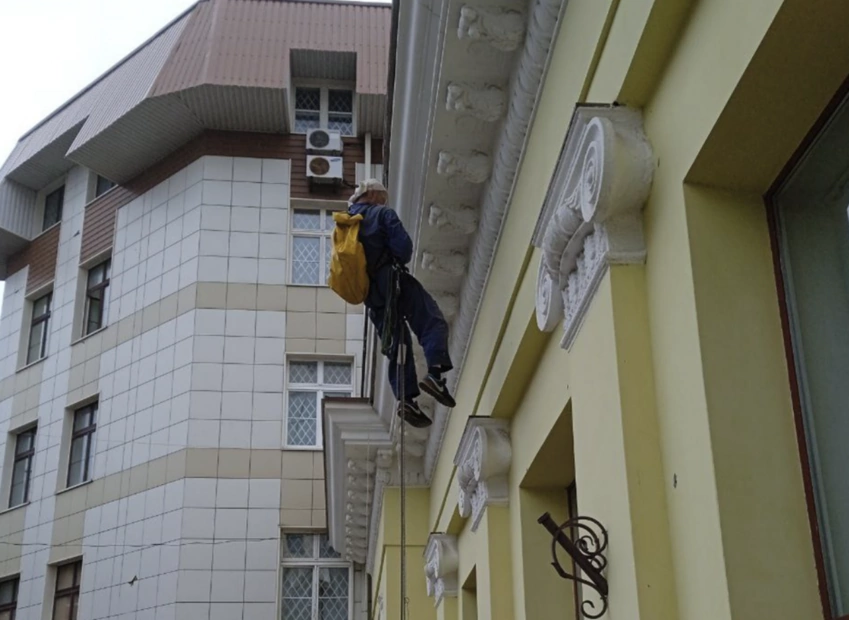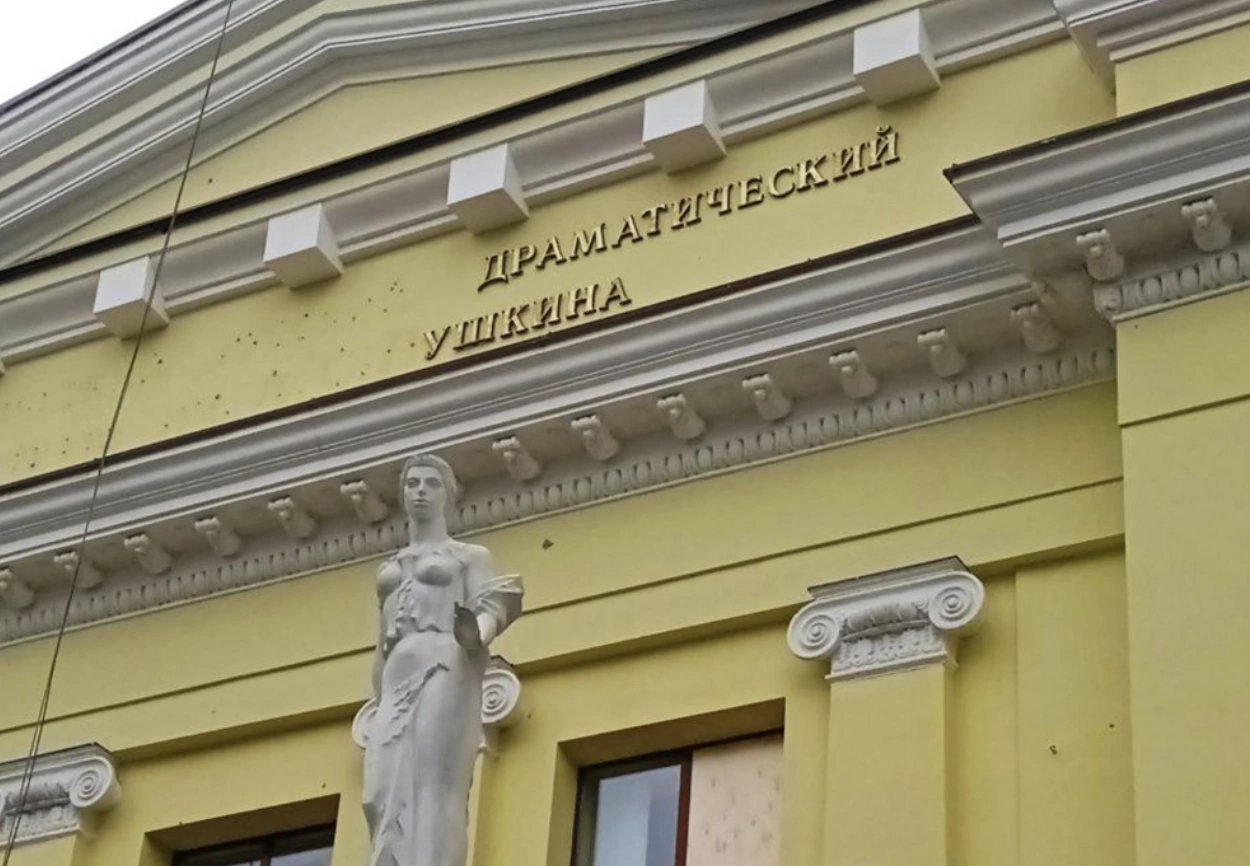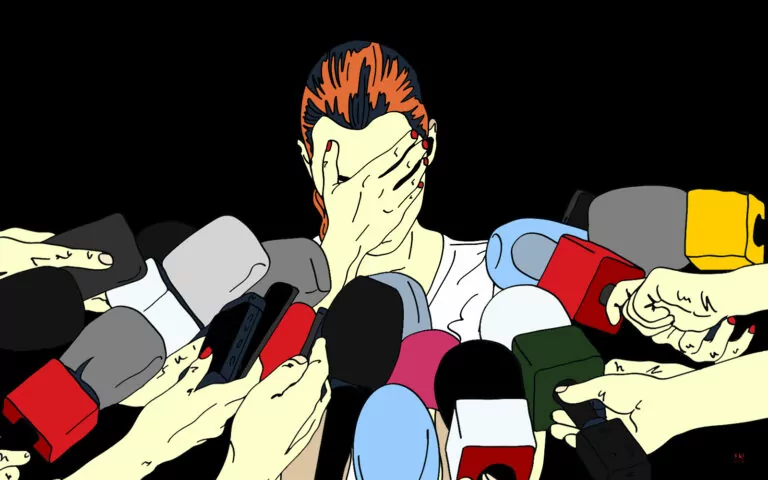The Kharkiv Academic Drama Theater has lost Pushkin in its name on the facade of the building. In December 2022, the Russian writer’s name was officially removed from the theater’s name, and today, on June 26, 2023, it was also removed from the building.
According to the theater’s acting director Olena Tkachenko, the employees got tired of waiting and called a climber. The work was done at her expense.
Previously, the full name of the theater used to be Kharkiv Academic Russian Drama Theater named after Pushkin. On March 1, 2022, the team intended to remove the words “Russian” and Pushkin from the name, but according to the law, the decision had to be made by deputies of the regional council. The officials could not reach an agreement for several months. There were various proposals, including removing the word “Russian” but keeping Pushkin’s name.

At the same time, in March 2022, the theater came under shelling three times. Shrapnel from the missiles was found on the roof, and a blast wave blew away the front door. Most of the windows and doors were left without glass.
On December 28, 2022, Kharkiv Academic Pushkin Theater was renamed the Kharkiv Academic Drama Theater. The theater’s acting director, Olena Tkachenko, said that the theater had switched to Ukrainian plays. Back then, two performances were created – Stolen Happiness and Forest Song. Last fall, the theater premiered a play based on Remarque’s Love Thy Neighbor.
Derussification in Ukraine
In the context of Ukraine, derussification refers to the policies and efforts aimed at reducing the influence of Russian language, culture, and political control in the country. It is part of a broader nation-building process and asserting Ukrainian national identity.
After gaining independence from the Soviet Union in 1991, Ukraine faced the challenge of defining its own identity and distancing itself from its Soviet past. As part of this process, there have been various initiatives to promote Ukrainian language and culture while diminishing the prominence of Russian.
Derussification in Ukraine has involved measures such as:
- Language Policies: The Ukrainian government has implemented policies to elevate the status and use of the Ukrainian language in various spheres, including education, media, government institutions, and public life. This includes promoting Ukrainian as the primary language of instruction in schools and universities and increasing the presence of Ukrainian-language media.
- Historical Reassessment: Ukraine has engaged in a reassessment of its history to emphasize its unique identity separate from Russia. This has involved reinterpreting historical events and figures, highlighting Ukrainian nationalism and independence movements.
- Cultural Promotion: Efforts have been made to promote Ukrainian culture, arts, and traditions, including supporting local artists, musicians, and writers. There have also been initiatives to preserve and restore historical monuments and sites significant to Ukrainian history.
- Decommunization: In the wake of the Maidan revolution in 2014, Ukraine passed a series of laws aimed at removing Soviet and communist symbols and renaming streets, towns, and institutions that had ties to the Soviet era. This was intended to break ties with the Soviet legacy and promote Ukrainian national symbols and figures.
See also
- Earlier, in November 2022, Kharkiv city council arranged the dismantling of the monument to the celebrated Russian poet Aleksander Pushkin. It is being kept in storage.
- President Zelenskyy signed a law banning books from Russia and Belarus. Ukraine has imposed restrictions on the import and distribution of publishing products from Russia, Belarus and the temporarily occupied territories of the country.




